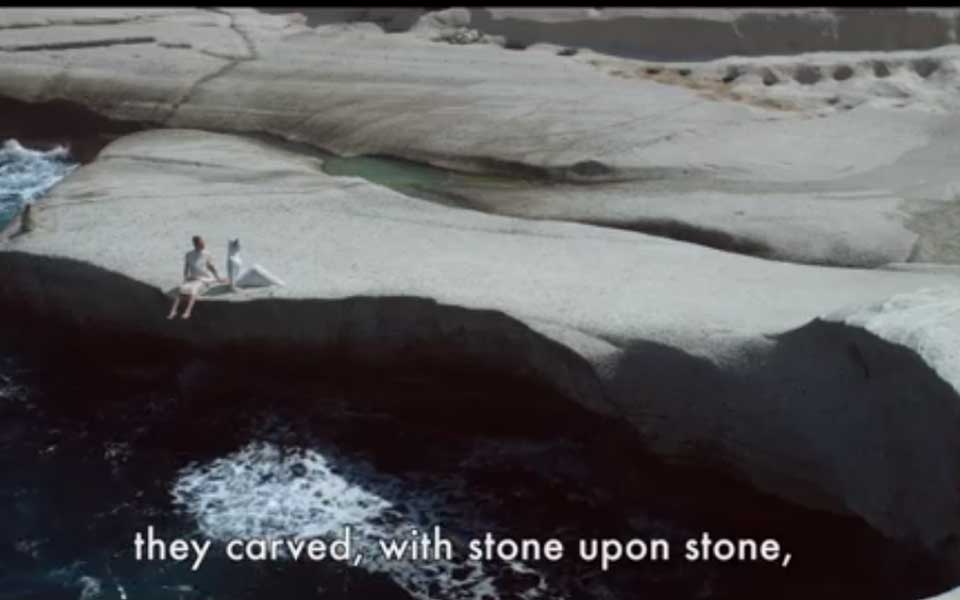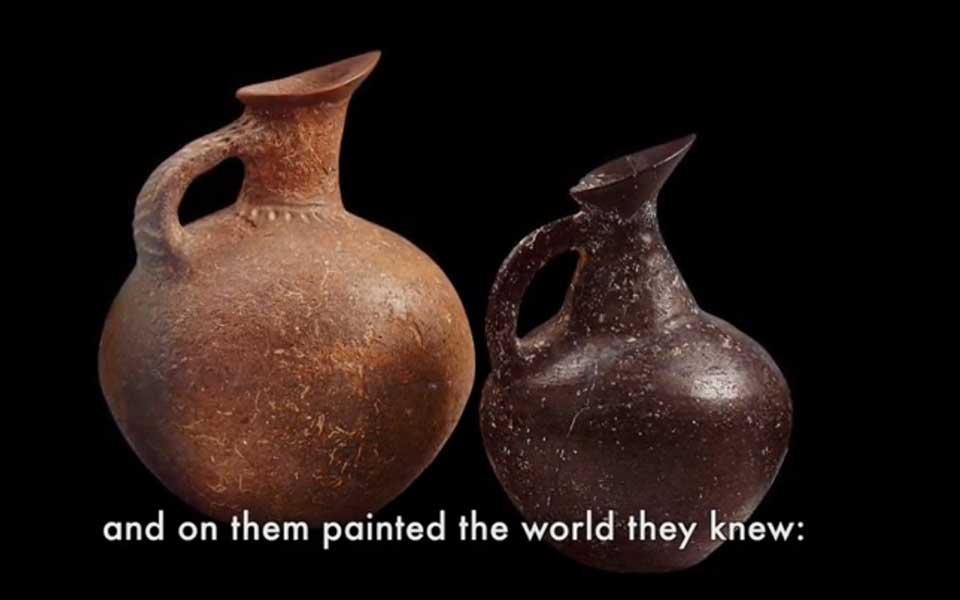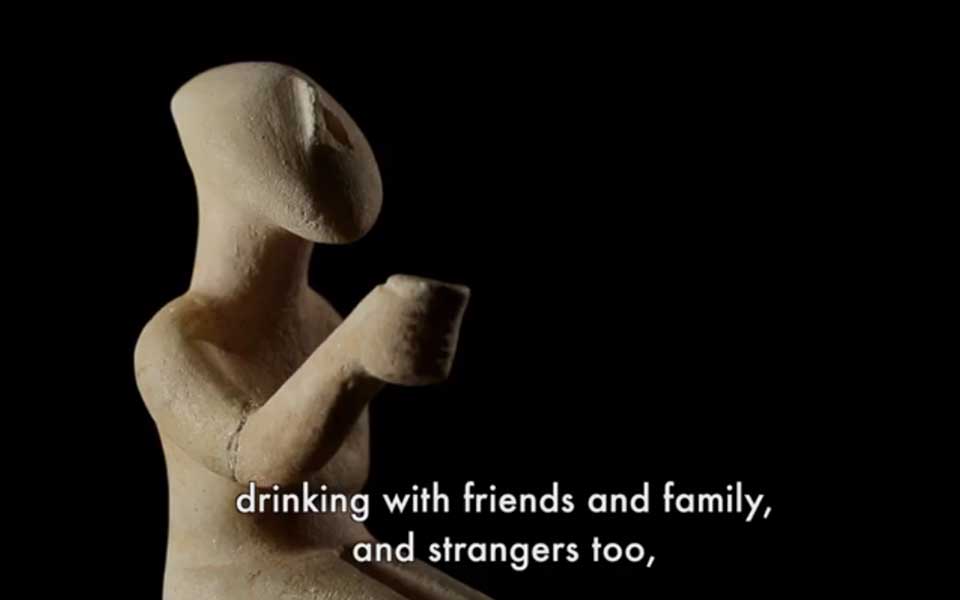If you have ever wondered how the ancient Aegean world began, or what it might feel like to be truly Greek, an enviable inheritor to this age-old, potent culture that has so long influenced and inspired almost everyone outside, the short film “Cycladic Society – A Video Poem” is for you.
The producers may call it a “video essay,” primarily on prehistoric Cycladic civilization, but that almost seems an injustice – as what you encounter during its seven-minute runtime comes across as more of a cinematic experience, enriched with a mix of poetry, history, archaeology, landscape, breathtaking photography and the soothing, almost hypnotic words of its writer and narrator, Prof. Nikolaos Stampolidis, director of the Museum of Cycladic Art (MCA).
The film is a component of the MCA’s current web-based exhibition, “Cycladic Society: 5,000 Years Ago,” which illuminates life in the Cyclades during the Early Bronze Age (3200-2000 BC).
Stampolidis’ eloquent, visually striking, artistically innovative presentation brings a whole new meaning to the expression “poetry in motion.” Like a present-day Hesiod or a Homeric bard reciting a hymn to Apollo, he describes the formation of the earth, islands and “most beautiful” Aegeis (Attica); the begetting of primal, sacred light; and the coming-to-rest of itinerant, previously “unseen” Asteria (Delos), the birthplace of divine, golden-haired Apollo.


We learn of the geography and mythical naming of the Cycladic islands, an archipelago arrayed ring-like around Delos to celebrate the coming of Zeus’ son. The sea itself, from the ancients’ impression of its wind-torn waves as white-maned horses or surging flocks of goats (“Aiges”), became the “Aegean.”
Interwoven throughout is the thematic thread of archaeology, as Stampolidis speaks of sea routes, ships and pioneering mariners, who sign-posted their way with evocative petroglyphs. Gradually, the islands flourished – with plants, animals and human inhabitants “…defying the angry god of the sea in search of a better life.”
Armed with keen intelligence, innovation and curiosity, men became tool-users, exploiting glassy obsidian and hardened bronze, while women decorated newly-thrown vessels with familiar images from their Cycladic environment: sun, waves and fish. Maritime trade expanded; communities formed; and music and feasting were born; as well as children, “the heart of home, and village, and society.”
It was “a hard but beautiful life,” accentuated with vibrant colors: dazzling white, of freshly carved marble; blue, “the skin of the sea;” and red, like blood, “the liquid soul of man.”


Particularly moving are Stampolidis’ descriptions of the sculpted marble figurines long iconic of Cycladic prehistoric culture. At times, his narration is accompanied by glimpses of intriguing modern performance art, impressive for its subtlety and stylishness.
The ancient sculptors carved into “undying stone” their lives, values and beliefs – through depictions of birds, beasts and humans; banqueters and musicians; regal warriors with swords and scabbards; but, above all, women, both mortal and divine.
Depicted apotropaically and reverently, they are curvaceous, fruitful and heroic; the source of all life. Reigning supreme is the “Earth-goddess mother,” whose sharply engraved nudity is a reminder of the power and inescapability of nature.











